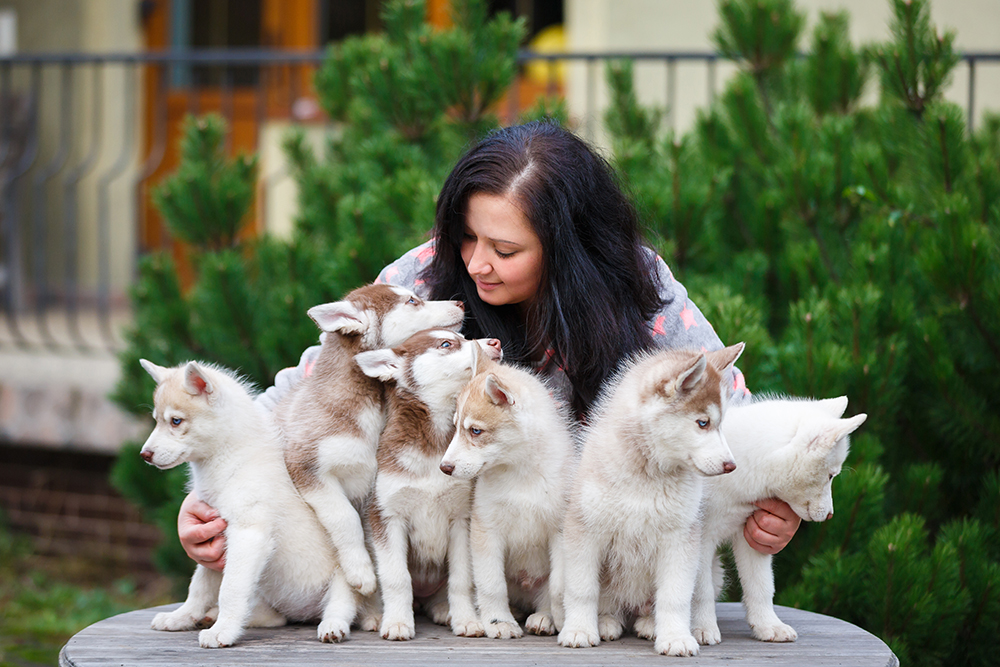In this article
Breeding is a hot topic among dog lovers everywhere, especially backyard breeding. Pet parents want to be sure the dogs they’re purchasing are bred with ethical practices. Some people advertise themselves as being licensed, but do you even need a license to breed dogs? The short answer is not all dog breeders need to be USDA-licensed. Commercial dog breeding is regulated on the federal level, and some states have additional requirements.

Dog Breeding as a Business
Dog breeding for profit is legal in all 50 states. However, historically, lax regulations have led to overbreeding, animal cruelty, and the rise of puppy mills. These problems have convinced some lawmakers to tighten the reins on dog breeding. One proposed method of handling the issue was to set up a licensing or permit system.

Do I Need a Permit to Breed Dogs?
According to the American Society for the Prevention of Cruelty to Animals (ASPCA), the commercial breeding of dogs is regulated on the federal level, and some states have their own additional requirements. Not all dog breeders need a USDA license. The license is only required for those who have more than four breeding females and sell pets sight unseen.
Aspiring breeders will need to learn the laws and regulations of their area before breeding. Rules like whether dogs can be on their property, how many dogs can be on the property at once, and how to register breeding stock and puppies will be essential to your business’s legality.
You’ll also need a business permit to breed dogs professionally. This ensures that your business follows all your state’s laws and regulations for how to run a business. People breeding commercially cannot forego either permit since they are legally required to run a dog breeding business.

AKC Recognition
The American Kennel Club, or AKC, also acts as an independent governing body for dog breeders. The AKC Breeder of Merit program allows breeders to register and qualify for recognition and rewards breeders who go above and beyond to ensure the safety of their dogs.
- Have a history of at least 5 years of involvement with AKC events
- Have earned AKC Conformation, Performance, or Companion event titles on a minimum of four dogs from AKC litters that they bred or co-bred
- Be a member of an AKC club
- Certify that applicable health screens are performed on your breeding stock as recommended by the Parent Club
- Demonstrate that 100% of the puppies produced are individually AKC-registered
Attaining this certification helps you sell your dogs and assures those purchasing dogs from you that your dogs are well taken care of.
Remember to Do Your Taxes
Dog breeders must remember that every dollar generated from dog breeding, even if breeding is only practiced as a hobby, is taxable income that will have to be declared. Even if you only have one litter and sell the puppies for a low price, ensuring that the income is declared correctly is essential. If not reported, the Internal Revenue Service (IRS) may audit and penalize you for tax evasion.

Unsafe or Unethical Breeding Practices
Unethical dog breeding practices that violate federal, state, or local animal welfare laws can result in legal actions against individuals who engage in them. If you suspect that a breeder is neglecting or abusing their animals, report it to the authorities or animal control to have them remove the dogs from their care.
Unethical breeding practices include but are not limited to overcrowding dogs in a small area, unsafe or unsanitary kenneling conditions, denying basic necessities like food, water, or veterinary care, having so many dogs that they can’t properly be cared for, inbreeding dogs, or breeding dogs with known severe hereditary conditions.
Dogs are living, feeling beings, but in the US they are also legally considered property. Aspiring breeders should carefully consider how they can improve the lives of their dogs, prioritize their health and welfare, and ensure they are breeding responsibly and ethically.
 Conclusion
Conclusion
Dog breeding can be a touchy subject for dog lovers, but it’s important to acknowledge that responsible breeding plays a key role in the existence of many dog breeds. While it’s crucial to criticize unsafe and unethical practices, we must also recognize the breeders who are committed to the health and well-being of their dogs and follow ethical standards.
When beginning their journeys, aspiring breeders should view the AKC Breeder of Merit program as the minimum standard of dog breeding, rather than a gold standard.
See also:
- The Consequences of Overbreeding Dogs: Vet-Reviewed Risks & Animal Welfare
- Dog Registration Papers: Vet-Approved Facts & Why You Need Them
Featured Image Credit: Konstantin Tronin, Shutterstock


 Conclusion
Conclusion





















